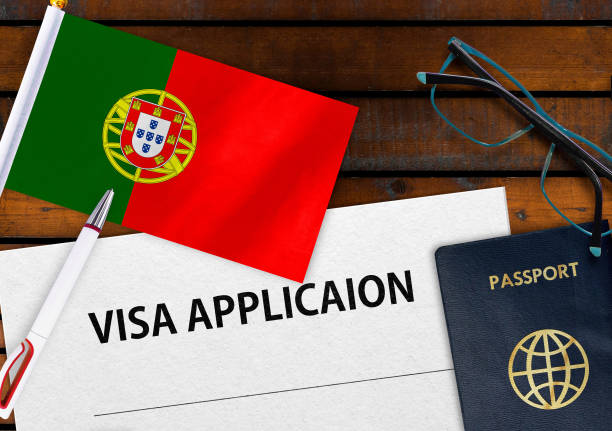Portugal offers excellent opportunities for international researchers to engage in academic and scientific work. Through a research visa, researchers can access Portugal’s universities, research centers, and private sector initiatives. This visa allows international scholars to experience Portugal’s growing research environment and utilize its strong academic and scientific resources.
General Information About the Research Visa
What Is a Research Visa for Portugal?
A research visa is a type of residence visa allowing foreign researchers to live in Portugal to conduct scientific or academic work at a recognized Portuguese institution.
Who Can Apply for a Research Visa?
Typically, postdoctoral researchers, PhD students, university-affiliated researchers, and professionals with research projects at recognized institutions are eligible. Applicants must have an invitation or agreement with a Portuguese research organization.
Types of Research Visas in Portugal
There are two main types of research visas:
- Temporary Stay Visa for Research: For short-term research activities under 90 days.
- Residence Visa for Research: For long-term research, usually over 90 days, connected to a specific project or job with a Portuguese institution.
How Long Can You Stay on a Research Visa?
The duration depends on the visa type:
- Temporary Stay Visa: Up to 90 days.
- Residence Visa: Usually for one year, with renewal options based on the research project length.
Do You Need a Research Visa for Conferences or Short Visits?
If your visit is under 90 days and for a conference or short research activity, you may not need a research visa. Instead, you might use a Schengen short-stay visa, or in some cases, no visa may be required depending on your nationality.
Where Do You Apply?
You must apply for a research visa in person at a Portuguese consulate or embassy in your home country. Applications cannot be completed fully online.
Steps to Apply for a Research Visa
Locate a Sponsoring Institution
You must obtain an invitation or agreement with an accredited research institution in Portugal. Websites like the Portuguese Foundation for Science and Technology (FCT) can help you find suitable institutions.
Prepare Required Documents
- A valid passport
- Evidence of a research agreement or invitation from a Portuguese institution
- Proof of financial support
- Health insurance coverage
- Academic qualifications or research credentials
- Completed application form and visa fee
Submit Your Application:
Take your completed application and all required documents to the nearest Portuguese consulate or embassy in your home country for submission.
How Long Does Visa Processing Take?
The processing time is usually 1–3 months, but this can vary based on the specific consulate’s workload.
Can You Apply for a Research Visa While in Portugal?
No, if you’re in Portugal on a tourist visa or other short-term visa, you must return to your home country to apply for a research visa.
Eligibility Criteria
What Qualifications Do You Need?
Typically, you need relevant academic or professional experience (like a PhD or Master’s degree) in a research field. You must also be affiliated with a recognized research institution in Portugal.
Is There an Age Limit for Research Visas?
There is no specific age limit. However, you must meet the academic or professional requirements for your research project.
Is an Official Invitation Required?
Yes, an official invitation or agreement with a Portuguese research institution is necessary to apply, as the visa is tied to a specific project.
Can Self-Funded Researchers Apply?
Yes, self-funded researchers can apply, but they must show a connection with a Portuguese research organization and demonstrate sufficient financial resources.
Financial and Insurance Requirements
How Much Money Is Required for Support?
You must show enough funds to cover living expenses, usually aligned with the minimum wage in Portugal or according to the funding specified in your research agreement.
Do You Need Health Insurance?
Yes, you must provide proof of health insurance when applying for the visa. You can either get insurance in your home country or from a Portuguese provider, but it must be valid from the start of your stay.
Does the Sponsoring Institution Provide Financial Support?
Some institutions may offer a salary or stipend. If they don’t, you’ll need to show alternative funding, like a scholarship or personal savings.
Visa Duration and Extensions
How Long Is the Research Visa Valid?
The research visa is typically valid for one year but can be extended based on the length of your research project.
How to Extend a Research Visa?
To extend your visa, apply through the Portuguese Immigration and Border Services (SEF) before your current visa expires. Provide documents showing the continuation of your research and proof of financial support.
Can You Switch to Another Visa Type?
Yes, it is possible to switch to a work or student visa if you meet the new visa’s eligibility requirements and apply through SEF.
Can You Change Your Research Focus?
Changing your research topic (e.g., from academic to industry-related research) may require additional approval from Portuguese authorities and possibly a new visa application.
Options After Your Research Visa
What Happens When Your Research Visa Expires?
You don’t need to leave immediately, but you must either apply for an extension or a different visa. Staying after your visa’s expiration could lead to penalties.
Can You Transition to a Work Visa?
Yes, you can apply for a work visa if you receive a job offer that meets the work visa criteria.
Is Permanent Residency an Option?
After five continuous years in Portugal, including time spent on a research visa, you can apply for permanent residency.
How Long Until You Can Apply for Citizenship?
You may be eligible to apply for Portuguese citizenship after five years of legal residency, including time on a research visa.
Rights and Restrictions for Research Visa Holders
Rights of a Research Visa Holder
- Live and Work: Research visa holders can live and conduct research in Portugal.
- Access to Healthcare: You can access healthcare services in Portugal.
- Banking and Housing: You can open a bank account and rent property in Portugal.
Can a Research Visa Holder Work Outside of Research?
Generally, no. Your primary activity must be your research project. However, you may apply for permission to take on additional employment if needed.
Can Family Members Join You in Portugal?
Yes, family members, such as a spouse or children, can apply to join you in Portugal through a family reunification process.
Can a Research Visa Holder Study?
Yes, you may study in Portugal, but your main focus should be your research.
Can You Travel Within the Schengen Area?
Yes, a Portuguese research visa allows you to travel within the Schengen Zone.
Other Restrictions
- Sensitive Research: Research in areas related to national security (like defense or military) may have restrictions.
- Changing Research Projects or Institutions: If you wish to change your project or institution, you must inform Portuguese authorities to ensure it aligns with your visa’s purpose.
What If a Research Visa Holder Breaks Visa Terms?
Breaking visa terms can result in penalties, deportation, or future visa issues.
Portugal offers a rich environment for research and innovation, making it a top destination for international researchers. The Research Visa provides foreign nationals the legal foundation to work, live, and contribute to Portugal’s scientific community. This streamlined visa program supports Portugal’s role as a center for global research, inviting skilled talent to drive new developments and discoveries.




